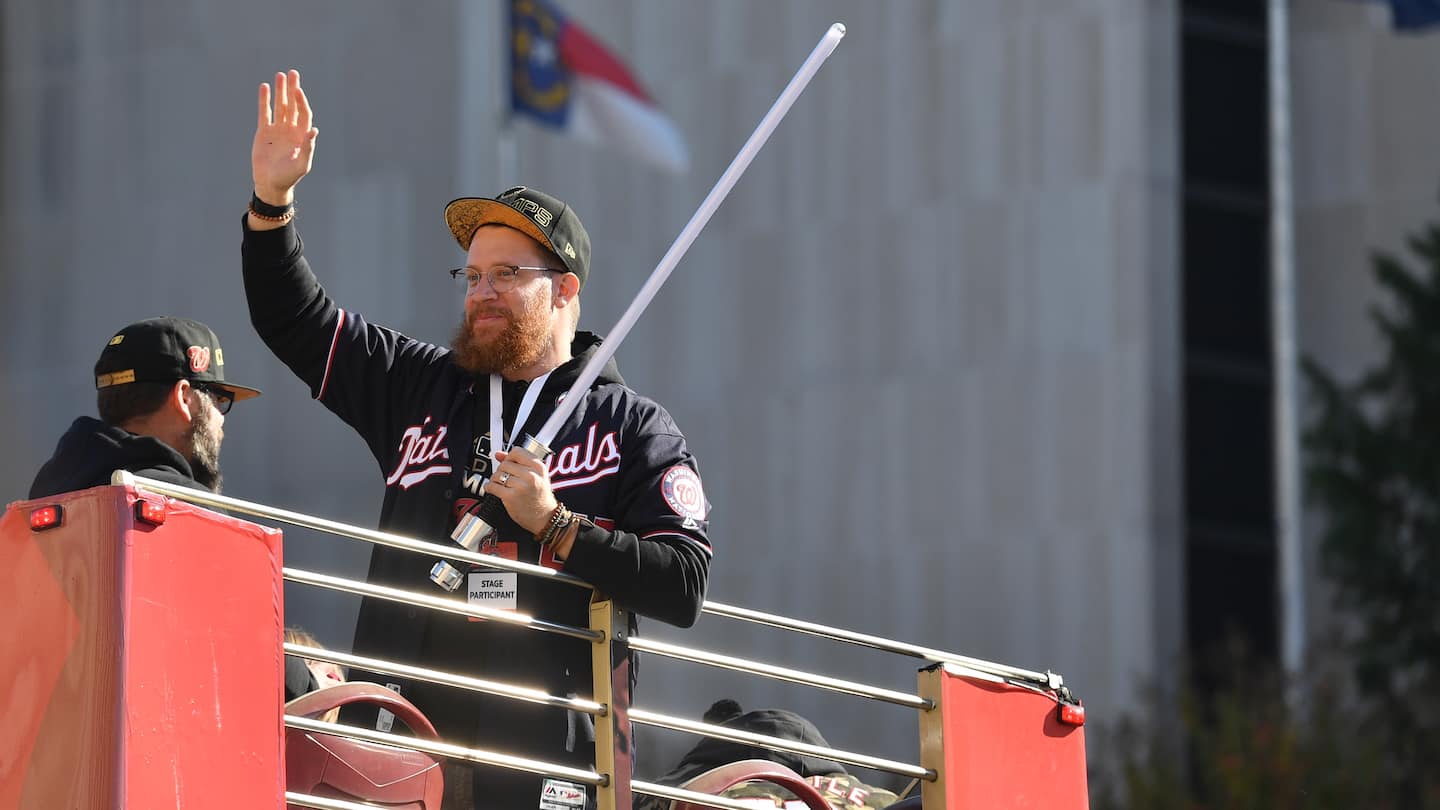Sean Doolittle, now headed to the Reds, loved Washington. And Washington loved him back.

But Washington grew on Doolittle, and Doolittle grew on Washington. Neither took long. Doolittle pitched in 142⅔ innings for the Nationals and had a 3.03 ERA. He finished four of the 12 wins needed to take the World Series in 2019. He and his wife, Eireann Dolan, spread themselves across the D.C. area, working with the LGBTQ community, veterans and the Washington Nationals Youth Baseball Academy, among other groups. And by September, in the weeks before Doolittle became a banged-up free agent, in the last month of a season that tested him more than any in his career, both of them wanted to stay.
That just wasn’t in the Nationals’ plans. They went and built a bullpen without him. Then Doolittle agreed to a one-year deal with the Cincinnati Reds on Tuesday, taking his left arm somewhere else.
“The city has meant so much to us,” Doolittle, 34, told The Washington Post in September. “My wife and I got married here, you know? This has been our home for four years, and we try to get involved in the community just to show how appreciative we are, for the support that we’ve gotten, and to show people how much we love D.C.”
Doolittle was hurt throughout his run in Washington. He talked openly about frustration with his body, that it couldn’t always hold up enough for him to anchor the bullpen without pauses. He joked that he was middle-aged and lucky to be a lefty, or else baseball would have spit him out years ago. It was easy to see how much each setback bothered him. He wanted to be accountable and pitch.
A string of left foot injuries held him to 45 innings in 2018, the first full year after the Nationals traded top prospect Jesús Luzardo to acquire Doolittle from the Athletics. (He still finished with a 1.60 ERA.) In 2019, when he was overused to lift a historically bad bullpen, he missed two weeks in August with right knee tendinitis and publicly ceded the closer label to Daniel Hudson. (He still finished 55 games, the most in the National League.) And in 2020, after spending part of the summer on the injured list, Doolittle’s last act was limping off the field, Nationals Park empty around him, his right oblique strained.
Maybe this was fitting. It certainly was cruel. A player loved by the fan base, and so often reinventing himself amid injuries, was never afforded a final ovation. The coronavirus pandemic kept Washington from celebrating its title, then had Doolittle, Howie Kendrick, Adam Eaton, Aníbal Sánchez, Kurt Suzuki and Asdrúbal Cabrera — all key members of the championship team — exit without goodbyes.
“It’s been a really rewarding four years,” Doolittle said in September, when it was not yet certain he would leave Washington, so he was not yet ready to reflect on what that would mean. “So I don’t know; I’ve been thinking about that a lot and just trying to stay grateful for all the good things that have happened since I’ve put this uniform on in 2017.”
Many of Doolittle’s highlights came off the mound. There were his regular charity efforts. There was his affection for independent bookstores, for the Nationals’ bullpen cart, for celebrating playoff wins with a blue lightsaber. But more often, and at times unintentionally, his willingness to discuss issues within and outside the sport thrust him into the public eye.
He spoke up in July 2018 when a number of major leaguers had old tweets publicized, all of which included some form of insensitive language. It didn’t matter that one of the players was Trea Turner, whom Doolittle shared a clubhouse with in Washington. Doolittle had a private conversation with Turner and later spoke with reporters at length about inclusivity in baseball.
After the Nationals won the World Series, Doolittle decided to not attend the White House celebration. His problem was with President Donald Trump and his “divisive rhetoric and the enabling of conspiracy theories and widening the divide in this country.” Doolittle and Dolan then advised other couples who did not want to attend the ceremony but feared retribution.
Then Doolittle spoke up again in 2020, as the sport restarted during a global pandemic. He was frustrated with how negotiations between the owners and the players’ union centered on finances, not health and safety. He said that “sports are like the reward of a functioning society,” suggesting America hadn’t earned baseball — or concerts, or indoor dining — with its coronavirus response.
But the summer also reignited his passion for pitching. He had considered retiring before opting in for a troubled season. He then struggled, went to the injured list with knee soreness and wound up in Fredericksburg, Va., at the club’s alternate site, with other hopefuls. He had to tweak his mechanics to restore the life of his fastball. His chances of another major league contract may have hinged on it. He felt refreshed, like a rookie again, rearing and starting from scratch.
That was until he strained his oblique Sept. 10. Yet he put enough on tape, and showed enough improvement, that the Reds added him to their immediate future. Doolittle has spent the winter rehabbing in Tempe, Ariz. The Nationals, meanwhile, signed Brad Hand and Sam Clay, left-handed relievers who squeezed Doolittle out. It was just more whittling down of the team that brought D.C. its first title since 1924. Perhaps Doolittle and the rest will return one day to see the banner flying beyond left field. Perhaps, on that same day, Nationals Park will be filled with people.
And there’s another truth about his time in Washington: A lot of it will last.






